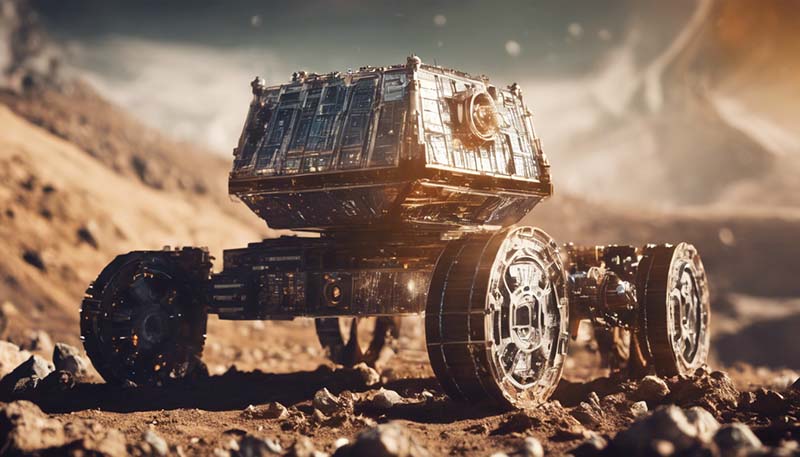The Space Mining Industry: Extracting Resources from Celestial Bodies
The concept of space mining, once the realm of science fiction, is fast becoming a reality as technology advances and the demand for resources on Earth continues to grow. The space mining industry involves the extraction of resources from celestial bodies such as asteroids, the Moon, and even planets. This article will explore the current state of space mining, the technology involved, the economic potential, and the challenges that must be overcome to make it a viable industry.
Space mining is still in its infancy, but there has been significant progress in recent years. Several private companies, such as Planetary Resources and Deep Space Industries, have been established with the goal of extracting resources from space. These companies are focusing on asteroid mining, which involves locating, extracting, and refining valuable materials from near-Earth asteroids.
Governments are also taking an interest in space mining. The United States passed the Commercial Space Launch Competitiveness Act in 2015, which provides a legal framework for American companies to extract and use resources from space. Other countries, including Luxembourg and the United Arab Emirates, have also enacted laws to support the development of their space mining industries.
Advertisement
The technology required for space mining is complex and involves several key components:
Advances in each of these areas are necessary for space mining to become feasible. For example, the development of more efficient propulsion systems would reduce the time and cost of space missions, making mining operations more economically viable.
The economic potential of space mining is enormous. Asteroids are rich in valuable metals such as platinum and gold, as well as water, which can be broken down into hydrogen and oxygen for use as rocket fuel. The Moon contains vast reserves of helium-3, a rare isotope that could potentially be used as a fuel for nuclear fusion reactors.
The ability to extract and utilize these resources could revolutionize various industries on Earth. For instance, the availability of abundant space-based resources could lead to a significant reduction in the cost of space travel, making it more accessible and opening up new opportunities for exploration and colonization.
Despite the potential rewards, there are numerous challenges that must be overcome before space mining can become a reality:
These challenges are not insurmountable, but they will require significant effort and cooperation between governments, private industry, and international organizations to address.
Space mining represents an exciting frontier for human exploration and economic development. As technology advances and the legal framework evolves, we may soon see the first commercial mining operations in space. The potential rewards are great, but so too are the challenges. It will require a concerted effort from all stakeholders to make space mining a reality and unlock the vast resources that await us among the stars.
The Space Mining Industry: Extracting Resources from Celestial Bodies
Current State of Space Mining
Technology Involved
Economic Potential
Challenges
Conclusion

Comments